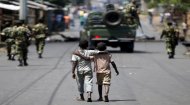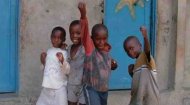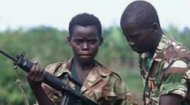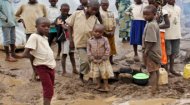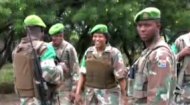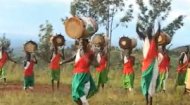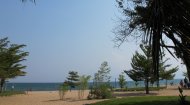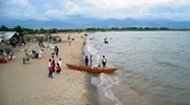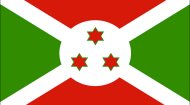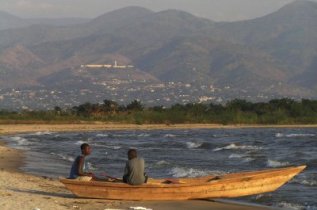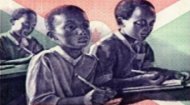|
Burundi's social profile is characterised by its three primary ethnic groups: the Hutu (the majority), the Tutsi, and the indigenous Twa, one of the oldest populations in the region. Despite historical tensions, these groups share a common language, Kirundi, and a deeply intertwined culture, fostering a sense of shared identity that often transcends ethnic lines in daily life. French and Swahili are also widely spoken, particularly in urban areas and commerce. Christianity, primarily Catholicism, is the predominant religion, alongside Protestantism, while traditional African beliefs and Islam are also practised. Religious faith often plays a significant role in community life and social gatherings.
Burundi's economic profile is predominantly agrarian, with over 90% of the population engaged in subsistence farming. Coffee and tea are the primary cash crops and key foreign exchange earners, though the sector is vulnerable to global price fluctuations and climate change. Other significant agricultural products include cotton, corn, sweet potatoes, and plantains. As one of the world's poorest countries, Burundi faces significant economic challenges. Its landlocked geography increases transportation costs, while limited infrastructure, high population density, and environmental degradation (like deforestation and soil erosion) strain natural resources. Despite these hurdles, there is growing potential in sectors such as mining (nickel, gold, rare earth minerals), which remains largely underdeveloped, and services, including a nascent tourism industry. International aid plays a crucial role in supporting development initiatives, particularly in healthcare, education, and infrastructure. The government is actively seeking to diversify the economy, improve the investment climate, and promote regional integration to foster sustainable growth and alleviate poverty. |
Burundi Profile |
Burundi Profile |
Burundi Profile | Burundi Profile |
This video of Bora Bora beach on the shores of Lake Tanganyika makes Burundi tourism look desirable!
More >

|
Burundi, like many developing nations, confronts a range of complex challenges. Political stability remains a delicate balance, and concerns about governance and human rights persist. Poverty is widespread, exacerbated by low agricultural productivity, limited access to education and healthcare, and high unemployment rates, particularly among youth. Food insecurity is a recurring issue, stemming from climate variability, land scarcity, and traditional farming methods. The healthcare system is under-resourced, facing challenges like malaria, HIV/AIDS, and maternal and child health issues. Education, though improving, still struggles with access, quality, and retention, especially in rural areas. Environmental degradation is another critical concern. Rapid deforestation for fuel and agriculture has led to severe soil erosion, threatening biodiversity and agricultural output. Addressing these intertwined issues requires sustained commitment, innovative solutions, and continued international partnership. Daily life in Burundi, particularly outside the capital, Bujumbura, follows a rhythm often dictated by the sun and the seasons. For the majority in rural areas, a typical day revolves around agricultural activities – cultivating fields, tending to livestock, and fetching water or firewood. Life is communal, with neighbours often assisting each other in daily tasks and social events. In Bujumbura, the pace is more dynamic. Markets are bustling hubs of activity where vendors sell everything from fresh produce and clothing to handicrafts. The city is alive with the sounds of vehicle horns, street vendors, and lively conversation. Transportation primarily involves shared taxis, buses, and the ubiquitous "cyclopousse" (bicycle taxis) in smaller towns. Burundian cuisine is simple, hearty, and relies heavily on local produce. Staples include ugali (a dense porridge made from corn flour), plantains, beans, sweet potatoes, and cassava. Isombe (cassava leaves stewed with palm oil and other vegetables) is a popular dish. Despite economic hardships, Burundians exhibit remarkable resilience, resourcefulness, and a strong spirit of community, often finding joy and celebration in everyday moments. Despite its past challenges, Burundi holds immense potential as a tourist destination, boasting stunning natural beauty and unique cultural experiences: Lake Tanganyika: The crown jewel, this vast freshwater lake is the second deepest in the world. Its sparkling blue waters offer pristine sandy beaches (like Saga Beach near Bujumbura), opportunities for swimming, fishing, and boating. The sunsets over Lake Tanganyika are truly spectacular. For more detailed information about the country, check out out Burundi profile pages above.
|

 Burundian culture is rich and vibrant, best exemplified by its world-famous drummers. The Abatimbo, or Royal Drummers of Burundi, are a national treasure, whose rhythmic performances are not just music but a powerful expression of history, spirituality, and national pride. Dance, oral traditions, storytelling, and proverbs are also central to Burundian identity. Family is the cornerstone of society, with strong communal bonds and a deep respect for elders. Hospitality is a hallmark of Burundian people, who often welcome visitors with genuine warmth and generosity.
Burundian culture is rich and vibrant, best exemplified by its world-famous drummers. The Abatimbo, or Royal Drummers of Burundi, are a national treasure, whose rhythmic performances are not just music but a powerful expression of history, spirituality, and national pride. Dance, oral traditions, storytelling, and proverbs are also central to Burundian identity. Family is the cornerstone of society, with strong communal bonds and a deep respect for elders. Hospitality is a hallmark of Burundian people, who often welcome visitors with genuine warmth and generosity.